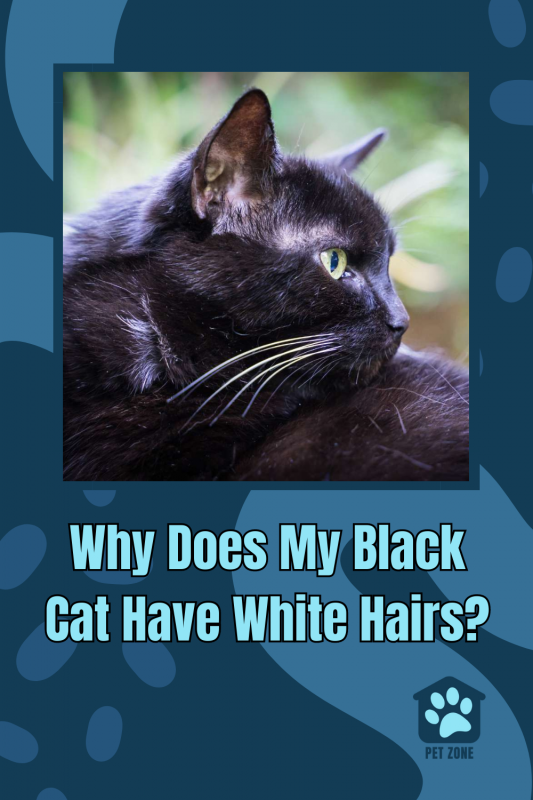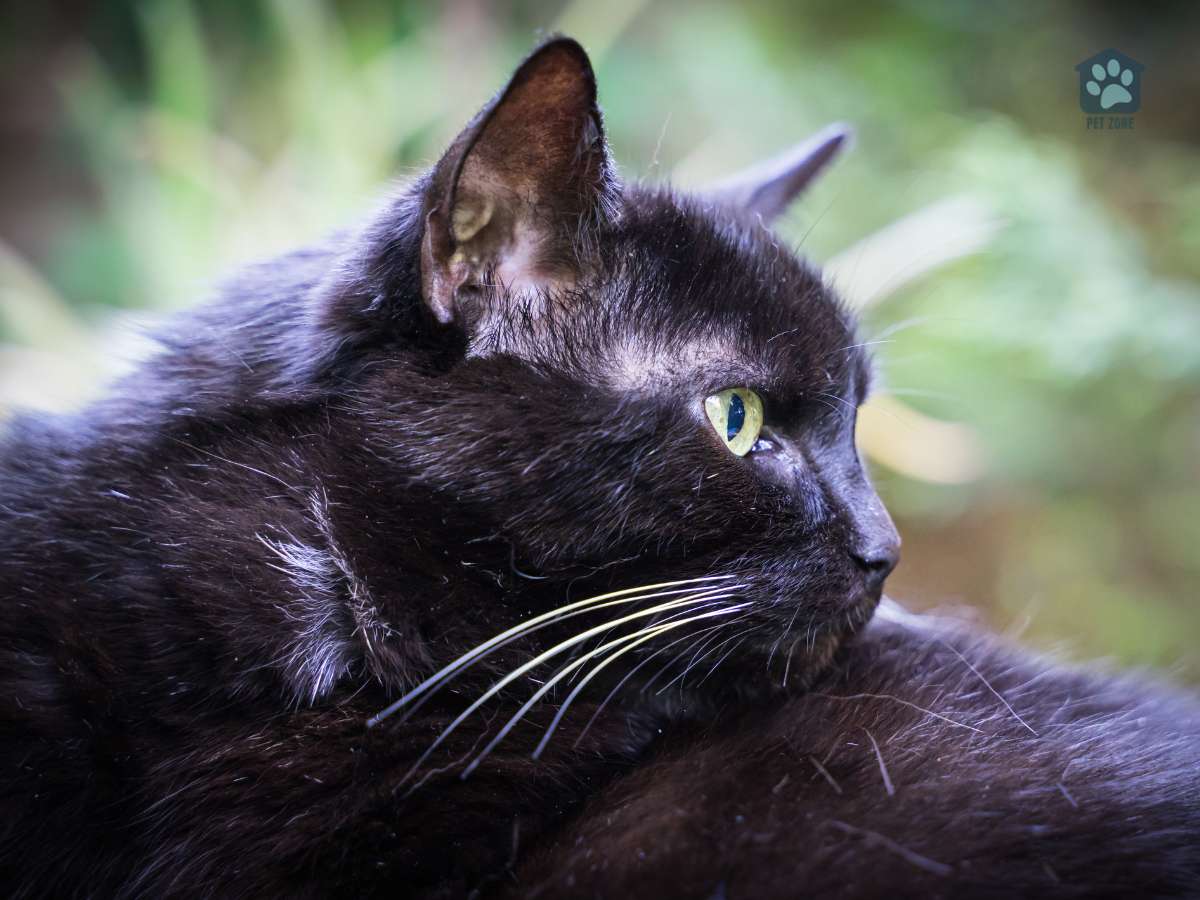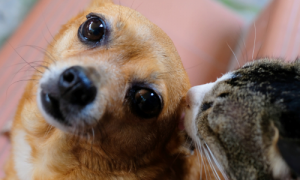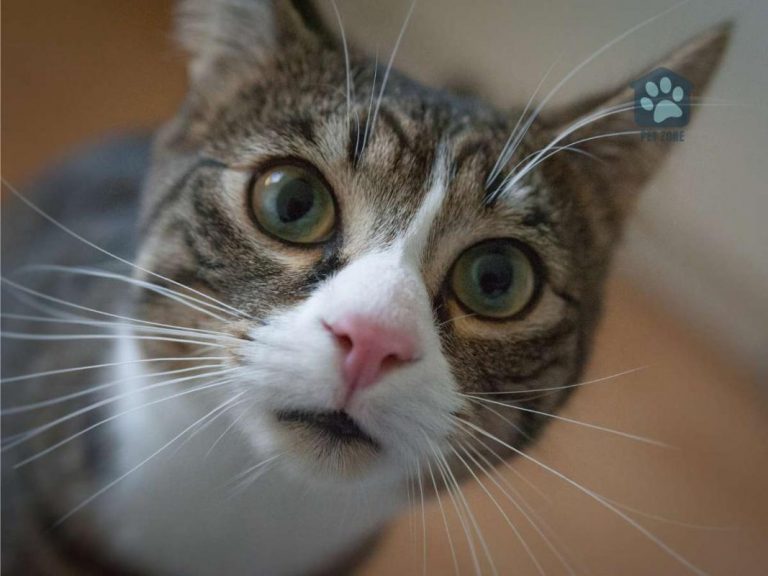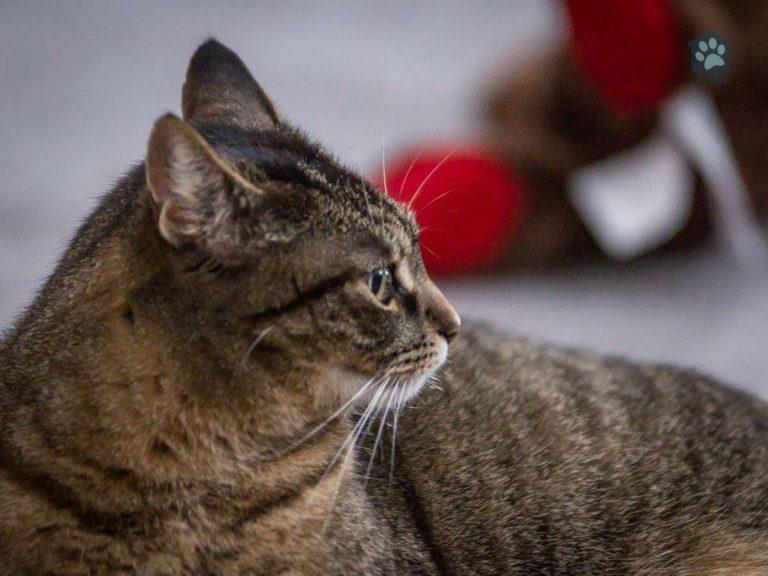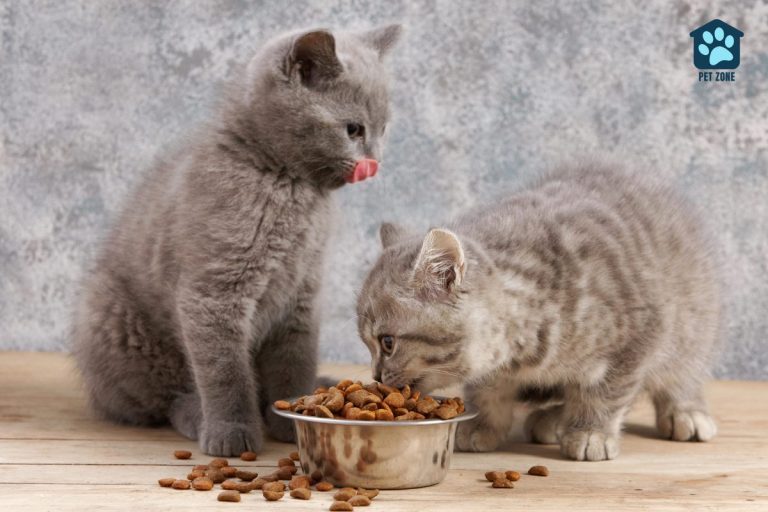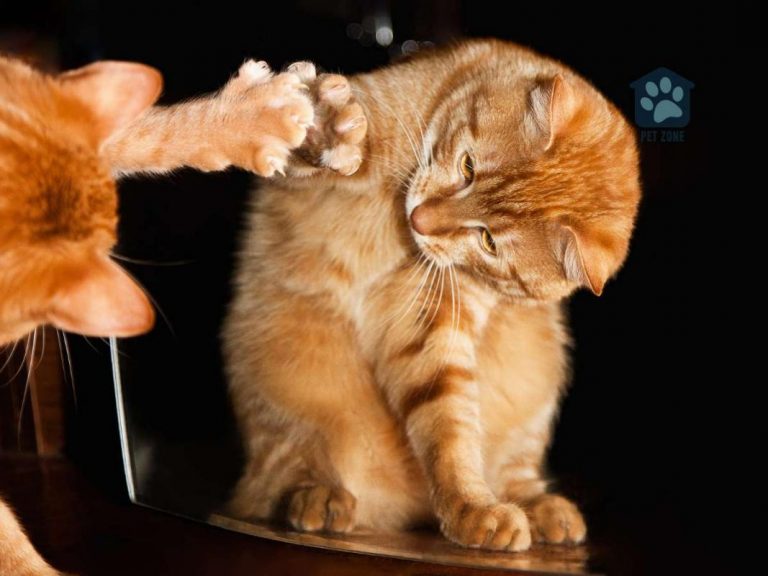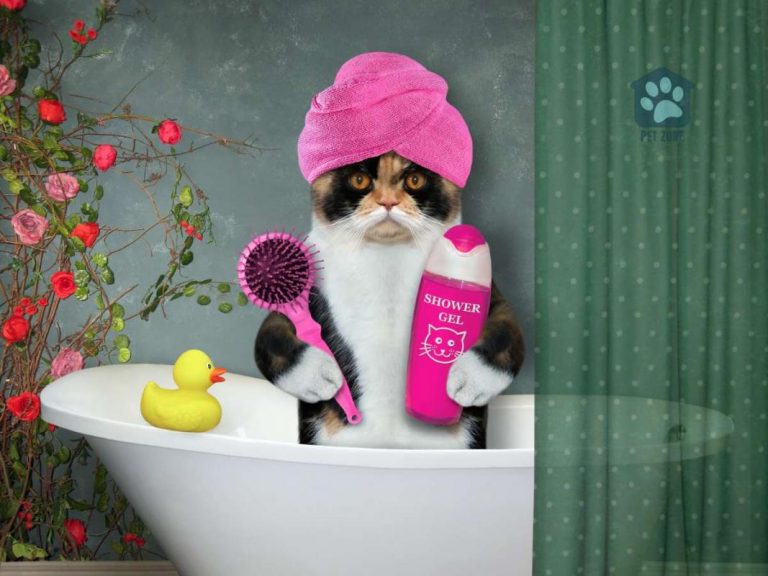Black cats may develop white hairs for several reasons, including genetics, aging, stress, and certain health conditions. Common causes include the white spotting gene, Piebaldism, depigmentation disorders like vitiligo, hormonal changes, and spinal cord disease. White hairs in a black cat can also simply be a natural part of the cat’s aging process or genetic makeup.
Estimated reading time: 9 minutes
Understanding the Mystery of White Hair in Black Cats
The Common Phenomenon of Little White Hairs in Black Cats
Have you ever wondered why your black cat may have a few random white hairs? Many owners of black cats have white hairs that seem to appear mysteriously. Some people even think of a black cat with white hairs as a sign of good luck.
When you observe white hairs on a black cat, it’s most likely not a cause for concern. These little white hairs are often a natural occurrence and can add character to your feline friend.
Even black cats may have a single white whisker or patches of white in their coat. Completely white hair is rare to find in a black cat, but a few white hairs in the litter box might not be uncommon.
Why It’s Rare to Find Cats Without White Hairs
Cats develop a few white hairs for various reasons. In some cat breeds, it’s normal to see white whiskers or a few random white hairs. Sometimes, a cat’s chest might have white hairs, and it can look quite charming.
The occurrence of white fur mixed with black fur is not just limited to one breed or age. From a black kitten to an elderly cat, you might discover white hairs, and it’s not something to worry about. White hairs on a black cat’s coat can even make your cat look more unique and interesting.
Genetic Reasons Black Cats Have White Hairs
The White Spotting Gene and Black Cats
Black cats may look entirely black, but sometimes they sport white whiskers or little white hairs. A common reason behind this phenomenon is the presence of the white spotting gene. This gene is responsible for those patches of white you might find on your black cat’s chest or other parts of its body.
If you see a black cat with white hairs, it’s most likely influenced by this gene. The gene’s codes for black fur might allow a small spot of white fur to appear. In some breeds, the white spotting gene is more prevalent, making it rare to find a black cat completely devoid of white.
Piebaldism and Its Effect on Cat Breeds
Piebaldism is another fascinating genetic factor that can make your cat develop white patches in its fur. This condition results from a pigmentation mutation, altering the cat’s fur color. Dark fur might turn white in certain areas due to this mutation.
Piebaldism doesn’t affect all cat breeds equally, and it can cause a wide range of effects. From a single white hair to larger patches of white, the variations can be quite stunning. This genetic aspect explains why even black cats develop white hairs on his chest or other areas.
The Influence of Genetics on Random White Hairs
Genetics plays a significant role in the appearance of white hairs in a black cat. If you notice random white hairs on your feline friend’s coat, it’s not just about luck to have a black cat like that; it’s often tied to genetic factors.
From black kittens showing little white hairs to adult cats with white whiskers, the genetic codes for black fur and white hair interplay in complex ways. The history of constipation in a cat’s lineage, for example, could lead to a greater likelihood of these features.
Understanding these genetic factors helps us appreciate the unique beauty of each black cat, and it also dispels many myths and misunderstandings about black cats and their fur.
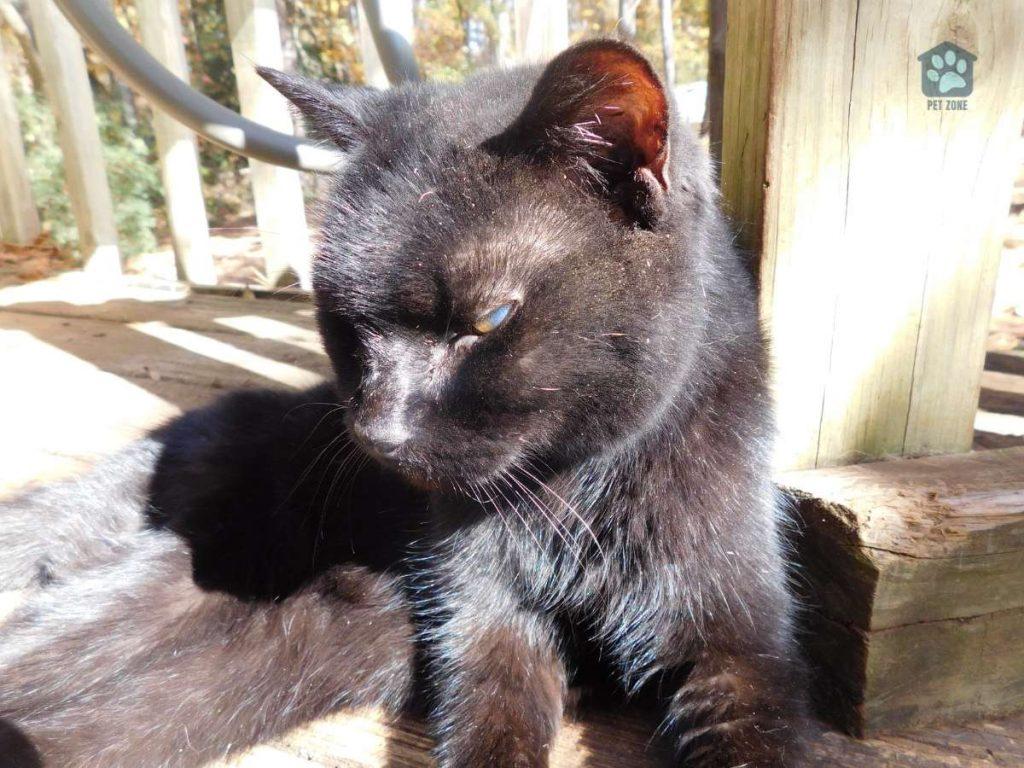
Health and Age Factors in Black Cats Getting White Hairs
Depigmentation Disorders in Feline Coats
Depigmentation disorders can cause a black cat’s fur color to change. Conditions like vitiligo or leukoderma may cause the pigment in the cat’s hair follicles to decrease, leading to the appearance of white hairs.
Vitiligo, for example, can create lace-like patterns of white across a black cat’s coat or cause speckling, webbing, or snow-like markings. These changes may be difficult to identify at first but become more noticeable as the cat gets older.
Understanding the hair-changing symptom can also help rule out any obstruction in understanding your cat’s health as well. If you notice significant changes in your cat’s fur color, especially if accompanied by other health concerns, a consultation with a vet is advisable.
Aging and White Hairs as They Age
Just like humans, cats get older and undergo natural changes. One of those changes in an elderly cat may include the fur turning grey or developing patches of white.
This process is known as graying and is a normal part of the aging process for cats. If your black cat’s hair starts shedding white hair, it could simply be a sign of maturity. White hairs as they age are a common occurrence, and it’s a natural part of a cat’s life, making them look even more distinguished.
Health Issues That May Cause White Hairs
Certain health conditions, such as spinal cord disease or metabolic or endocrine disorders, may lead to a black cat getting white hairs. These changes could be a sign of underlying health issues that need attention.
If the appearance of white hairs is accompanied by changes in your cat’s behavior or other symptoms, don’t hesitate to consult a vet to rule out any underlying problems. Keep your cat healthy and happy by being aware of any sudden or unexpected changes in fur color.
These factors illustrate that black cats develop white hairs not only due to genetics and aging but also various health conditions.
Hormonal and Stress Factors in Black Cats Developing White Hairs
Hormonal Changes Leading to White Hairs in Cats
Hormones play a vital role in a cat’s fur color. Changes in hormone levels due to pregnancy, aging, or illness can cause the black fur to develop white hairs. When hormones fluctuate, the pigment in the hair follicles may change, leading to the appearance of white hairs.
Some cat breeds are more likely to experience these changes. If you notice your black cat getting white hairs, it may be linked to hormonal fluctuations. Consulting a vet will rule out any serious issues, and they can provide guidance on keeping your cat healthy and happy.
Stress and Its Effects on Cats’ Fur Color
Stress can affect us all, including our feline friends. A black cat may develop white patches of fur due to stress. Just like humans, cats tend to react physically to stressful situations, and one manifestation might be changes in fur color.
If your black cat’s fur starts to turn white in patches, consider the environment and any changes that might be causing stress. Ensuring a peaceful home environment, providing fresh fruits and vegetables, and increasing their water in with the food might help relieve stress. If the situation doesn’t improve, consulting a vet might be necessary to ensure the well-being of your cat.
Understanding Black Cat Myths and Facts About Black Cats with White Hairs
Common Myths about Black Cats and White Hairs
Many people think of a black cat as a symbol of superstition, and myths about black cats and white hairs have been around for a long time. One common myth is that a black cat turning white is a sign of bad luck or a mystical occurrence. Others might believe that all-black cats must never have white hair.
These myths are just stories and have no basis in reality. Black cats may develop a few white hairs for various reasons, such as genetics, aging, or health conditions, as explained earlier in this article.
Facts about Black Cats and Their Unique Features
Black cats are more than just their coat color. Here are some real facts about black cats that might surprise you:
- Black hair in cats can change over time due to environmental factors or age. Black kittens might have a few white whiskers that change as they get older.
- Some black cats have a unique gene that makes their black fur appear rusty or brownish in sunlight.
- Black cats may have white hair or even black cats may have white whiskers due to genetics or other factors explained earlier.
Understanding the facts helps us appreciate the diversity and beauty of black cats. Whether your black cat has a single white hair or patches of white, these features make each cat unique.
The Importance of Knowing Your Black Cat’s Breed
Knowing the breed of your black cat can help you understand why they have white hairs. Some cat breeds are more likely to develop white whiskers or random white hairs due to genetics or other factors.
If you have a black cat with white hairs, knowing the breed can provide insights into their health and care needs. It’s not just about luck to have a black cat; understanding the breed helps ensure that they are well taken care of and happy.
Black Cats and the Connection to Culture and History
Throughout history, black cats have been symbols of various beliefs and superstitions. From being considered lucky in some cultures to being associated with witches in others, the black cat has a rich history.
Understanding the history, coupled with the facts about black cats and their unique features, allows us to appreciate them more. The appearance of white hairs on a black cat’s chest or other parts of their body adds to their mystique and charm.
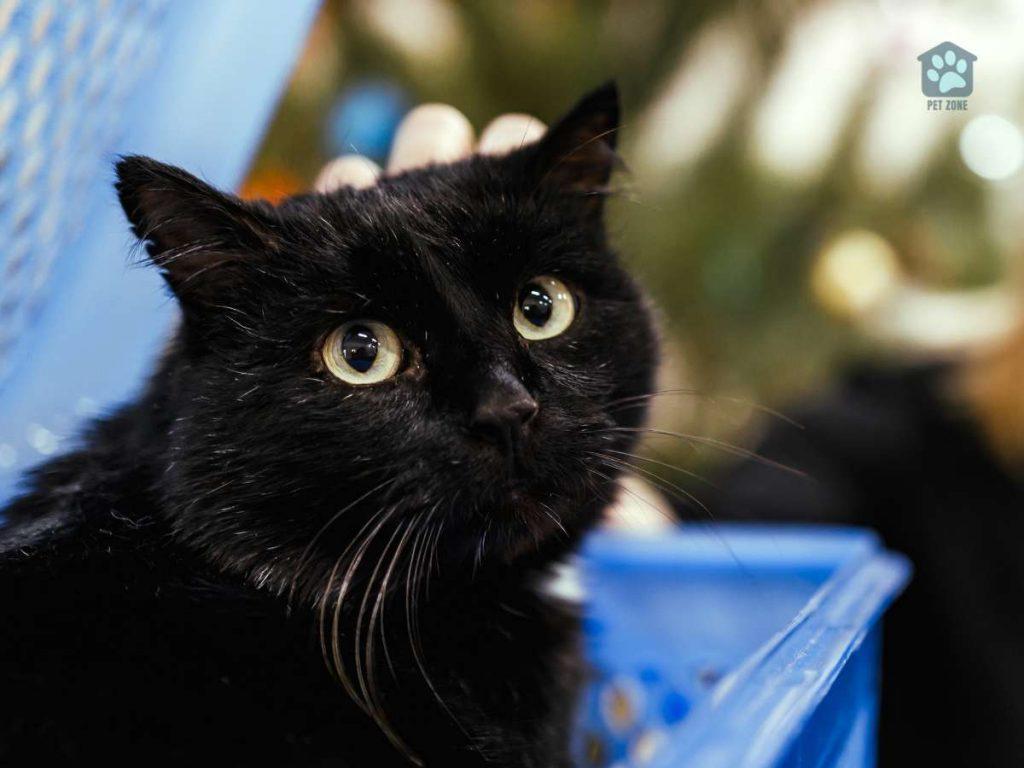
How to Care for Your Black Cat
Observing Changes in Your Black Cat’s Fur
Being observant of changes in your black cat’s fur color is essential. If your black cat is getting white hairs, it might be a normal part of aging or a sign of an underlying health issue. Monitor for any sudden changes or patches of white and consult a vet if you notice anything concerning.
Providing Proper Nutrition and Care
What you serve your pet at home matters. A balanced diet, including fresh fruits and vegetables, can keep your black cat’s coat shiny and healthy. Make sure to have multiple freshwater sources and try to add water in with the food to keep them hydrated.
If your cat has some white hairs, maintaining good hygiene with a gentle spot wash of the soiled area may be beneficial. Keeping the soiled area clean ensures that the cat’s fur stays vibrant and supports overall cat’s health as well.
Regular Veterinary Check-Ups
Regular visits to the vet will help in keeping track of your cat’s health, especially if you notice white hairs and their aftermath in the litter box. A vet can rule out any underlying issues like metabolic or endocrine disorders that might be causing the white hair.
Creating a Comfortable Environment
Your black cat’s living conditions can influence their fur color. If stress is causing the fur to turn white, consider ways to make your cat feel more comfortable.
Understanding and Embracing Your Black Cat’s Uniqueness
Every black cat is special, even black cats with white whiskers or a little white hair. Embrace the uniqueness of your cat’s appearance and don’t be concerned if they develop a few white hairs as they age. It’s most likely a normal part of life and adds to their charm.
Feel free to share your thoughts and experiences with black cats in the comments below, and don’t hesitate to share this article with fellow cat lovers. Your insights and shares help us grow our community and continue to offer helpful advice for pet owners!
As an Amazon Associate I earn from qualifying purchases.
